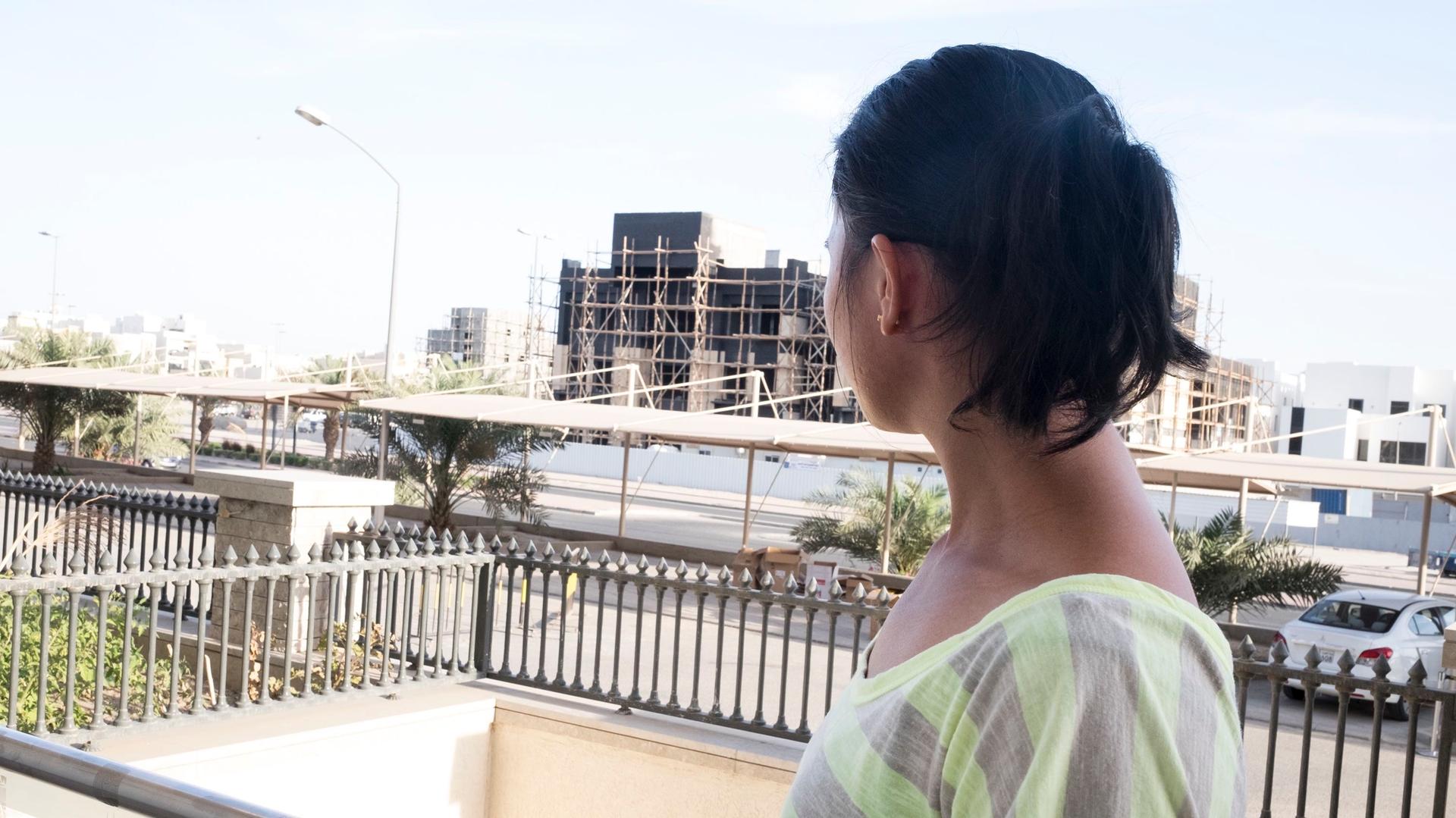After grisly murder, Kuwait and the Philippines face diplomatic crisis over domestic worker abuse
Filipina domestic worker Rita, whose name has been changed to protect her identity, plans to press charges against her Kuwaiti employers for abuse she suffered in their home.
A Filipina woman wearing a plain, tan-colored uniform is met by a man rushing toward her in a parking lot. He collects her luggage, and they both climb into an idling SUV.
That's what a camera captures before panning to the vehicle's front seat and going black. The footage of the pair, whose identities are undisclosed, was released by the Philippine Department of Foreign Affairs on April 19. It shows Philippine Embassy staff carrying out what they say is one of several operations helping distressed domestic workers escape their employers in Kuwait. Although the video lasts only 15 seconds, it has brought an already crumbling relationship between the two countries to the brink.
The clip went viral on social media, first in Manila, then across the tiny Gulf state. Days later, Kuwaiti authorities called the operation a violation of its laws and state sovereignty and expelled Philippine Ambassador to Kuwait Renato Villa.
oembed://https%3A//www.youtube.com/watch%3Fv%3DL9z8TEd4Hl8%26feature%3Dyoutu.be
It's the latest blow in a crisis that started in January when a string of Filipino suicides in Kuwait led Philippine President Rodrigo Duterte to ban his citizens from working there. Kuwait responded with an amnesty deal for undocumented workers across the country, giving an estimated 10,000 Filipinos the chance for a free flight home and waived exit fees.
But a month later, Kuwaiti authorities discovered the body of Filipina domestic worker Joanna Demafelis, 29, inside a freezer in an abandoned apartment. Her employers — a Lebanese man and his Syrian wife — were later sentenced to death in absentia for her murder.
Related: She thought she was going to be a teacher in Kuwait — instead she was trafficked
The case shot the plight of domestic workers, predominantly women, into international headlines. But maltreatment has been widespread in Kuwait and across the Gulf.
A shelter for abuse victims at Kuwait’s Philippine Embassy regularly hosts around 200 women, clocking in some of the highest numbers in the region, according to advocates. That figure soared past 1,000 in February.
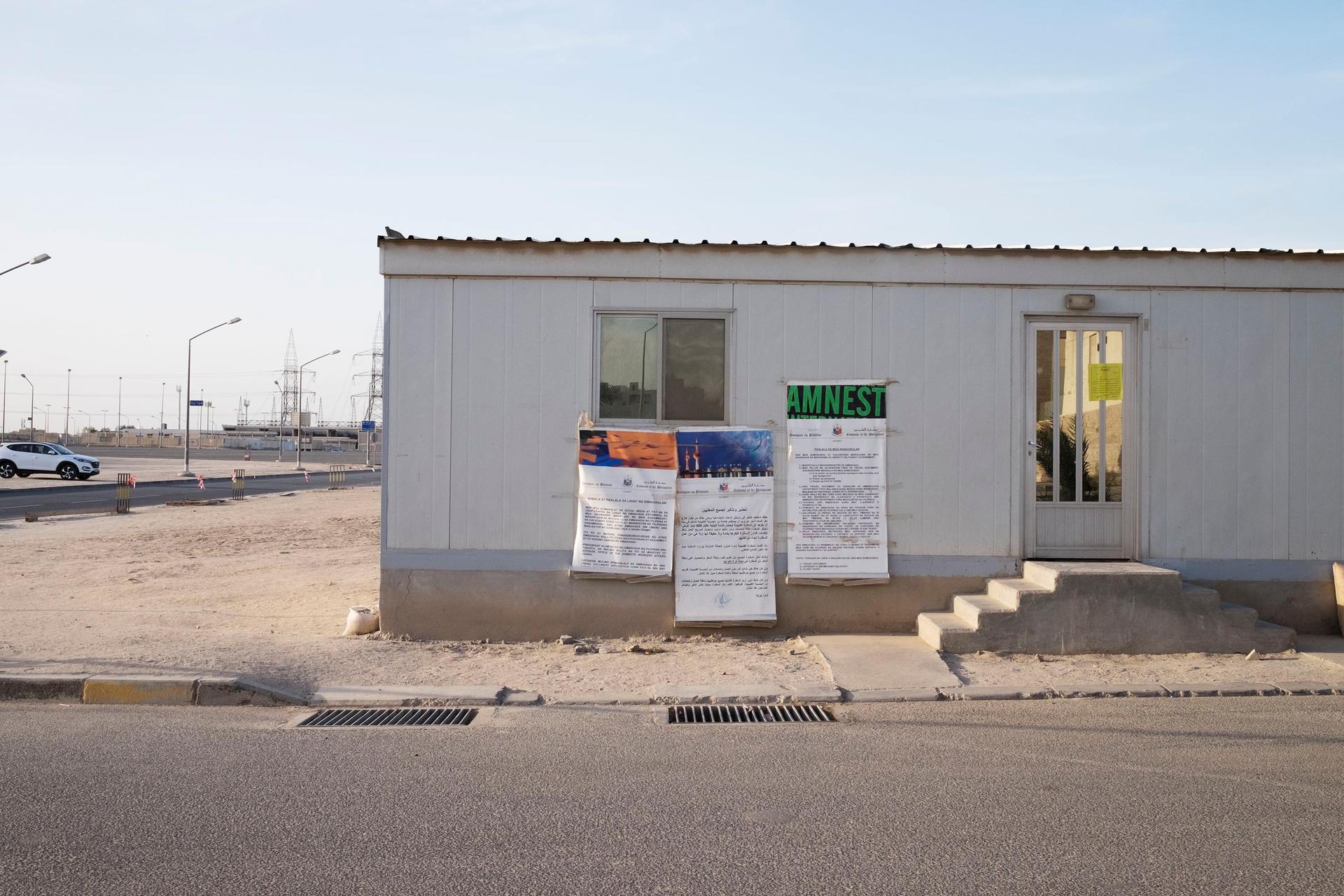
An emergency medical mission
On a March afternoon, women filed through seemingly every inch of the shelter's cramped, two-floor space, to get medical assistance. Many were still dressed in pastel maid’s uniforms; some were barefoot, their belongings left behind in harried getaways. Volunteer physicians took vital signs and handed out medication.
Ann Abunda, a co-founder of Kuwait-based Filipino aid organization Sandigan, said workers were being treated by her group’s physician recruits in an emergency medical mission for ailments spanning physical trauma sustained at the hands of their employers to common colds and chronic conditions.
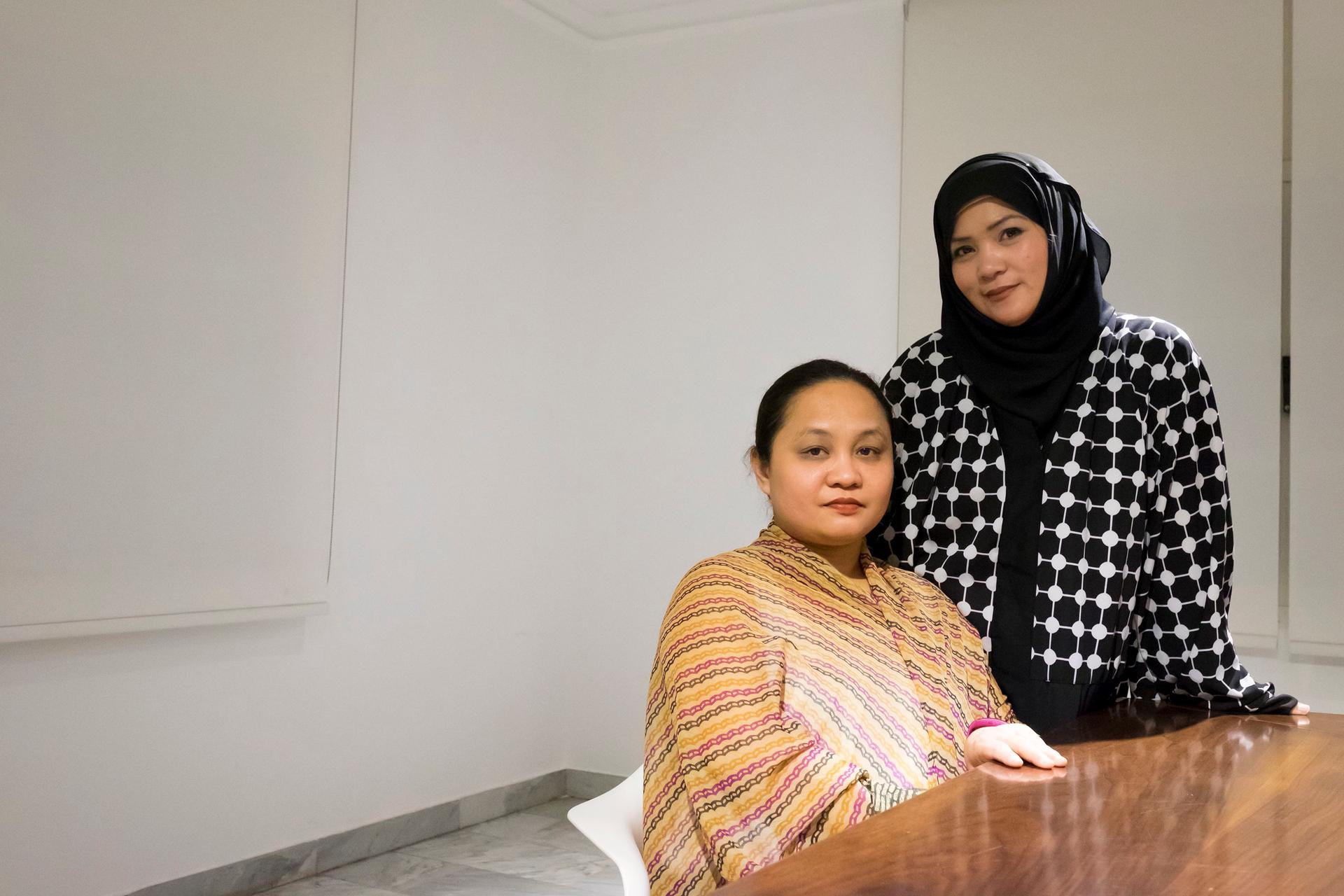
“It is kind of a disaster situation to be in an environment like this,” said Abdallah Alawadi, a 27-year-old Kuwaiti doctor volunteering with Sandigan. “There is this overcrowding of people and infections spread, so it's very hazardous.”
At the shelter that day, at least one domestic worker had burns on the back of her neck. There were also reports of a woman there who had spent the last five years in a legal battle against a Kuwaiti policeman accused of her rape and attempted murder — a case that had been well-covered in the local media.
Ambassador Villa estimated some 4,000 Filipinos had flown home with the amnesty deal after obtaining travel documents from the embassy and exit permission from Kuwait’s Ministry of Interior.
“Joanna’s case had quite an effect,” the ambassador said in March, commenting on the increase in shelter numbers.
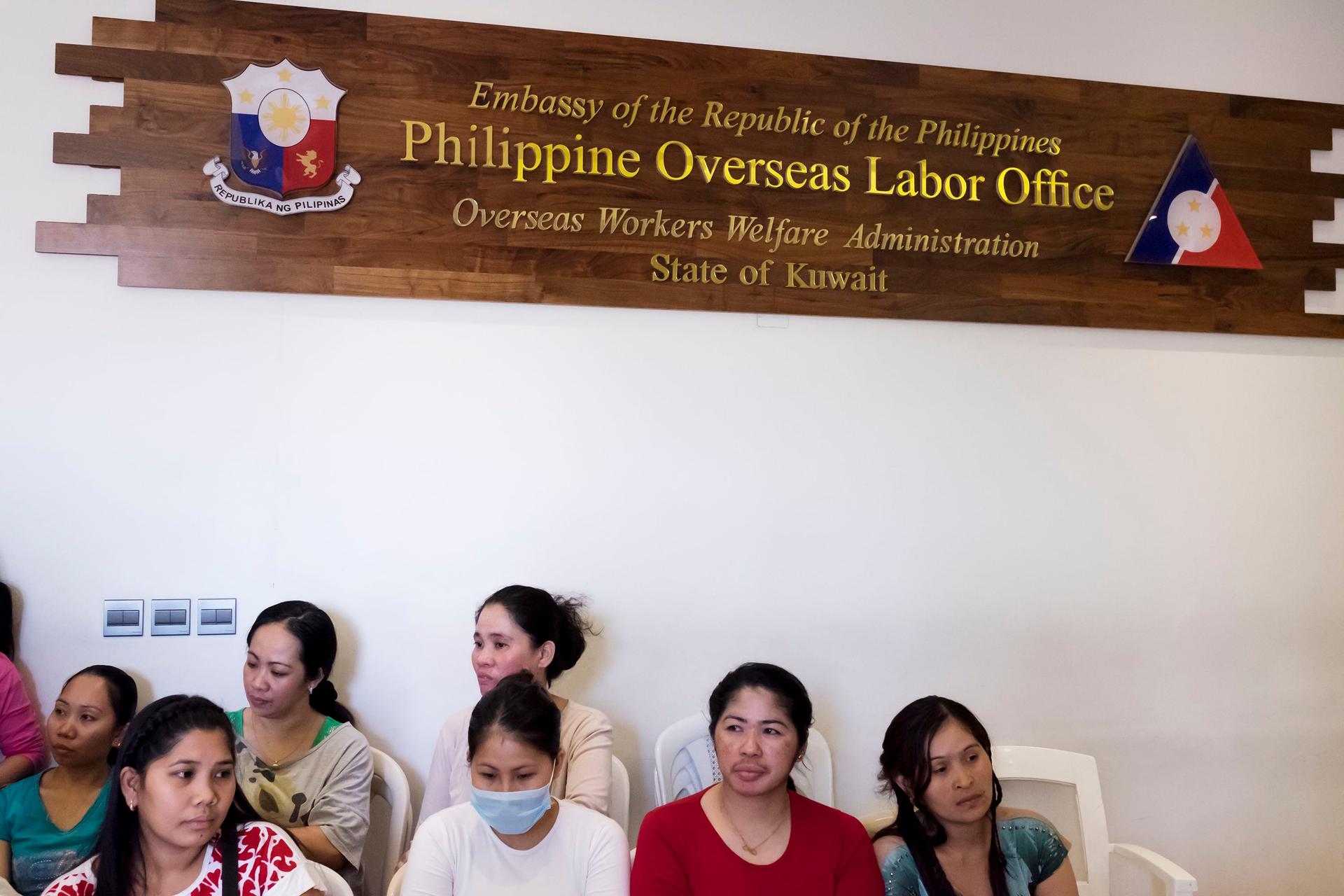
Her case also set the stage for a series of bilateral talks that saw Philippine government officials asking Kuwait to guarantee workers’ right to keep their passports, open a bank account and have a daily rest period of at least seven hours. Villa said a compilation of blacklisted employers was also on the table.
Almost 5,000 workers had returned to the Philippines by the deal’s close on April 22, according to the ambassador. But some 800 women are still waiting for repatriation at the shelter today. Meanwhile, Duterte has called on some 260,000 Filipinos working in Kuwait to return home.
'Who will protect us?'
Labor talks between the two nations are currently suspended. With the Muslim holy month of Ramadan around the corner, activists say the backlash could derail safeguards at a time that typically sees more abuse cases and higher workloads in Kuwaiti homes.
“Everyone has been jeopardized by this video,” said one activist, who didn't want to be named amid the charged climate. “If the embassy is crippled like this, and maids are still asking for help, who will protect us?”
Thousands of abuse cases have been documented over the last decade, reports show.
Related: Inside the Philippines’ women-run crime ring selling abortion elixirs
Families began recruiting household help from abroad following an oil boom in the Gulf in the 1970s. This shot Kuwait's domestic worker numbers from an initial 12,000 to 660,000 in 2015. Today, they account for well over a fifth of the country’s small population.
Even as that figure continues to grow, protection has lagged far behind.
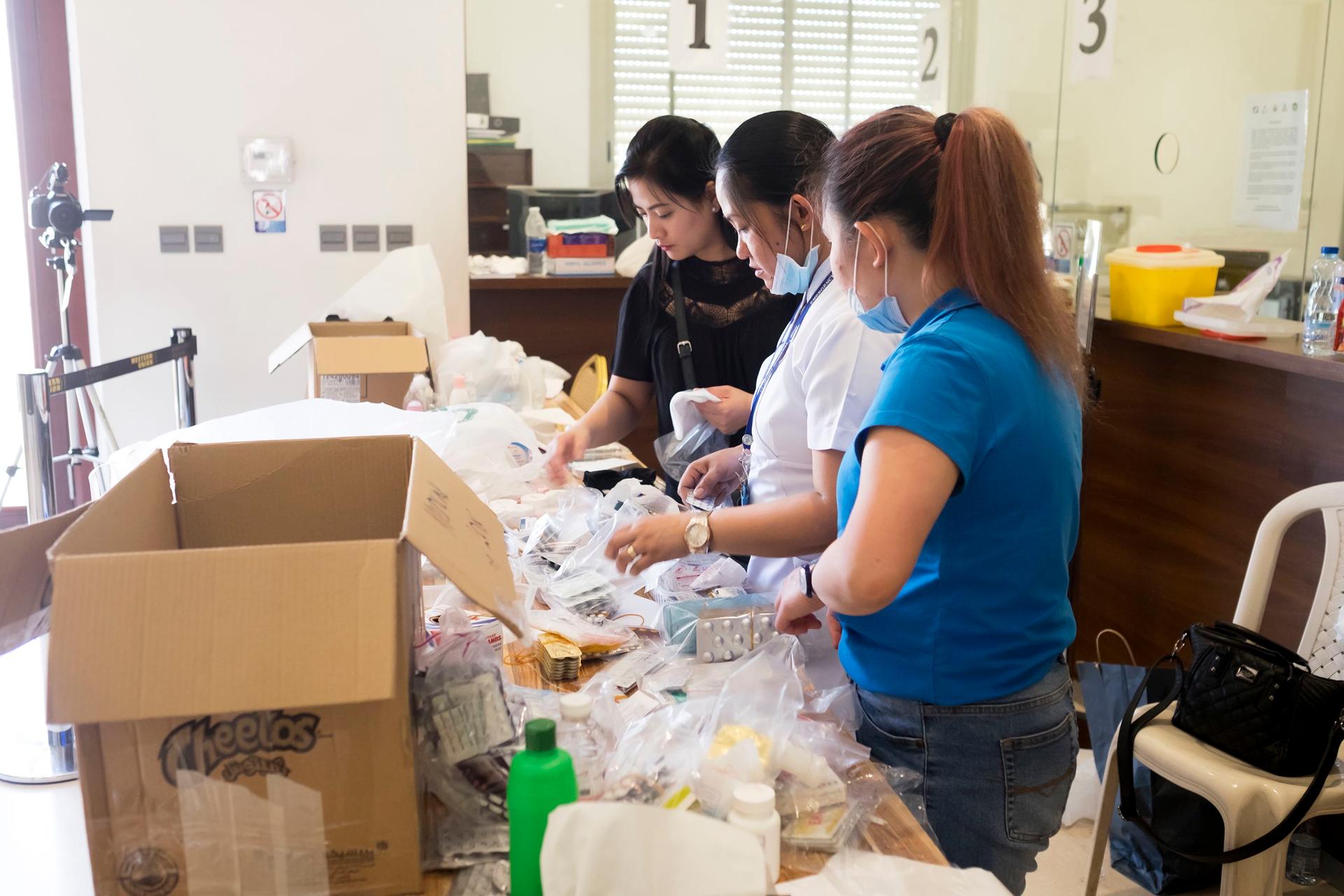
Several stipulations requested this year by Manila are already incorporated into Kuwait’s 2015 Domestic Labor Law but were never fully implemented. The legislature prohibits passport seizure and gives workers rights to a weekly day off, annual paid leave and overtime pay, among others.
Rights groups say a lack of enforcement nullifies these official steps.
Lobbying for aid groups
Bibi Nasser is a Kuwaiti national who has assisted in thousands of migrant worker cases since founding aid the group, Social Work Society, over a decade ago.
Back then, she says, public discourse and government assistance for workers in need were all but nonexistent. “When I first started working, I didn’t even know where to take the case to,” she said.
During her career, she’s seen lawmakers pass the Anti-Trafficking Law in 2013 and establish a government-run women’s shelter that, despite being placed in a crime-riddled area outside the capital, is open to all migrants.

Still, Nasser says employers regularly take workers’ passports and deprive them of basic rights with impunity, a plague that finds its origins in the local kafala system. Like in neighboring Gulf states, this sponsorship scheme ties work visas to one employer and leaves migrants with few outlets to address abuse.
When workers flee or change jobs without permission, employers can file “absconding” cases that call for immediate deportation or imprisonment. Nasser says employers also retaliate against runaways by filing theft cases, locking workers into legal wrangles that take months or years to resolve.
“Absconding means immediate deportation, but if they put a theft case against you, it means you're stuck; you have a travel ban,” she said.
Civil society and union leadership are limited to Kuwaitis, leaving migrant community advocates powerless to help victims lodge complaints against their employers. Kuwaiti policemen are the only legal authority allowed to respond to abuse allegations inside private homes.
Embassies and migrant-run aid groups have taken rescues into their own hands before, but last week’s video shoved these covert efforts into the social media limelight.
“I think the foreign ministry had to deal with the situation the way they did mostly because of public outrage,” Nasser said. “They don’t see this [as] rescue; they see it as people stealing workers from them. Then you have the educated class who feel it was an insult to our state sovereignty, which I think is just an educated way of saying, ‘We own them.’”
Nasser uses her nationality and high social status to help lobby for aid groups flying under the radar, like the Philippines’ Sandigan.
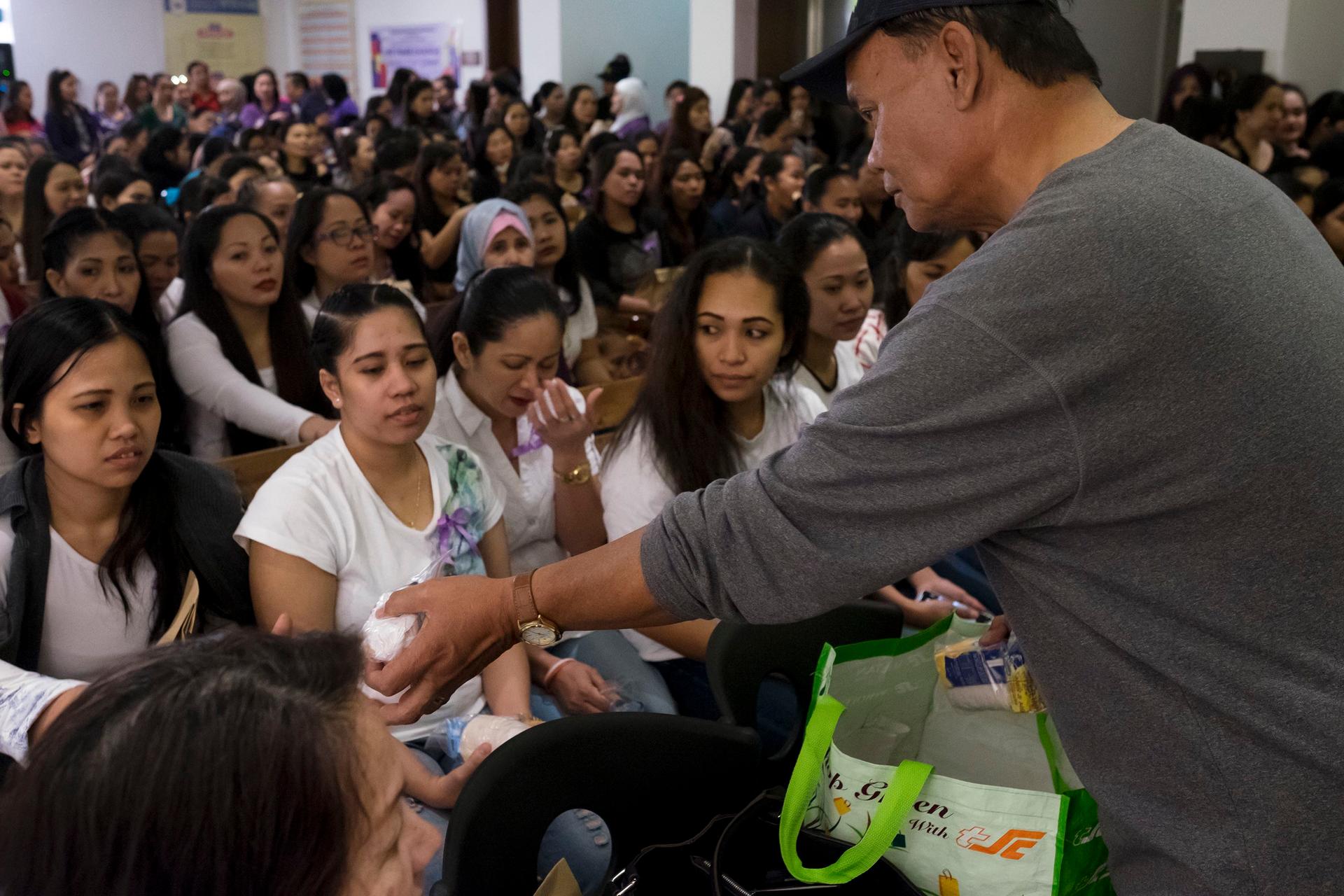
The organization’s co-founder Chito, a Filipino information technology worker who didn't want his full name used for fear of reprisal, says his group began calling for a moratorium on Filipino domestic workers to Kuwait eight years ago. At that point, they faced rampant abuse cases with no official system to solve them.
“It was really too much; we were seeing rapes and physical abuses, plus labor issues and nonpayment of salaries,” he said. “Our goal was to stop the deployment and, at least, create a system so that domestic workers could be protected.”
When cases are reported to Chito and other migrant community leaders, Nasser steps in with a network of pro bono lawyers and useful contacts to follow up. She is also working with Kuwait’s Ministry of Interior to produce booklets outlining workers’ rights to be handed out in places migrants visit, including airports, visa points and money exchange booths.
On Sunday, Duterte told reporters in Singapore his ban is here to stay.
Despite the grim cases his group witnessed throughout, Chito says this carries its own risks and presents no final solution.
“When you use humans as bargaining chips, it becomes political,” he said. “Once you ban, there's a lot of backdoor stuff; human trafficking is elevated.”
The fallout of last week’s video has aid groups and embassy officials on high alert, but in the chaos, Nasser also sees an opportunity.
“I think all that’s happening between Kuwait and Philippines is moving things forward to a better situation,” she said.
Because domestic labor issues fall under Kuwait’s Ministry of Interior, workers have for years been excluded from the legal protections of other sectors. Nasser says an executive order circulating through Kuwaiti parliament could shift that responsibility to the Ministry of Labor’s Public Authority for Manpower.
“I still don’t know many details of this switch, but it means they will recognize domestic workers as workers," she said. "And it seems inevitable that they’ll have to make some amendments to the existing [domestic labor] law.”
Even without the shift, Nasser says discussions like the one happening now in Kuwait are vital to stemming abuse, not just in Kuwait, but in the entire region.
“I just want to make sure that people understand that it’s not just Kuwait; this happens all over the Gulf, in Lebanon and Malaysia,” she said. “I wish discussions like the one with the Philippine Embassy were happening all over because it needs to be a vast movement.”
Looking for justice
Back at the shelter in March, women huddled on staircases as Sandigan’s medical mission wound down. Rita, a 27-year-old domestic worker whose name has been changed to protect her identity, pressed a bandage to her arm after having her vitals taken.
She’d been in Kuwait for seven months before fleeing the home of her Kuwaiti employers.
They spoke only Arabic; she did not. The little English she knew didn't stop misunderstandings from escalating; she was severely beaten across her face, head and knees.
The abuse worsened when her employers caught her trying to escape the first time.
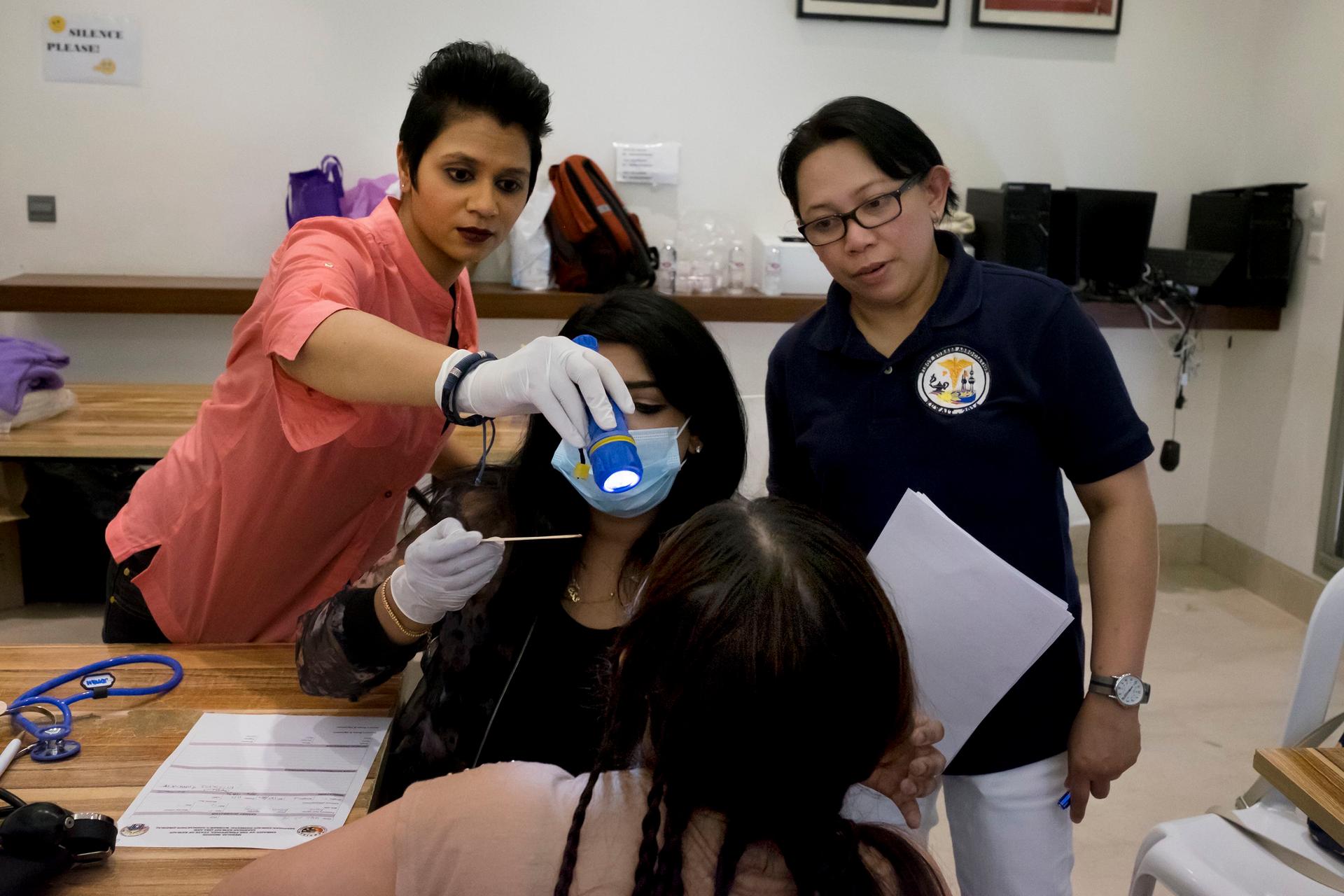
They took her cellphone and locked her inside the home. Employers are supposed to return workers to recruitment agencies when sponsorship goes awry. But instead, she says the family was planning on illegally transferring her contract to someone else, in exchange for money.
One night, she slipped out of an unlocked door and fled deep into the desert. She spent two days crouched in a drainage pipe before a group of Filipinos found her and brought her to the embassy.
Rita decided to file an abuse case against her employers. Advocates say that process could take months or years but she’s willing to wait.
“I want justice for what happened to me,” she said. “I thought of going home just like that, but I realized I should do something not only for myself but for others who could suffer the same fate.”
Alisa Reznick reported from Kuwait. Elisa Oddone contributed to this report.
